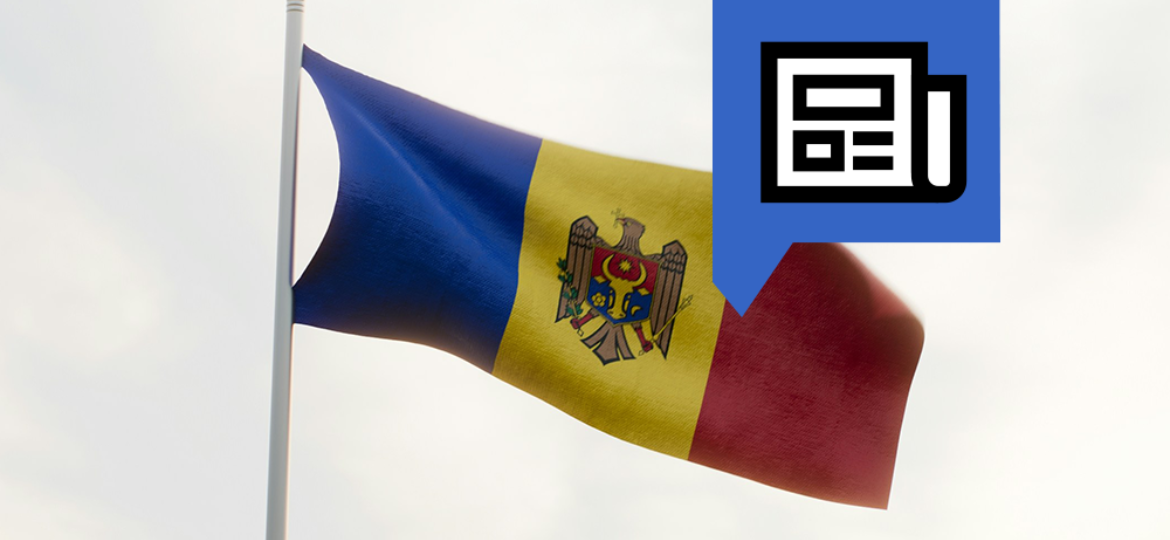The news that made headlines covers the EU Council Monday announcement on imposing restrictive measures against five individuals and one entity responsible for destabilizing actions in Moldova. Among those sanctioned is Evghenia Guțui, the governor of Gagauzia, accused of promoting separatism and attempting to undermine Moldova’s sovereignty and independence. The list also includes other individuals involved in destabilizing activities in Gagauzia: Mihail Vlah, deputy governor and media relations advisor; Iurii Cuznețov, deputy head of the region’s foreign affairs department; and Illia Uzun, vice president of the executive committee and member of the Gagauzian National Assembly. Currently, these restrictive measures apply to a total of 16 individuals and two entities, according to the EU Council’s statement.
Officers from the National Anticorruption Center (CNA) and prosecutors in Bălți conducted searches at the office of the Blocul Victorie party and the homes of affiliated individuals as part of a criminal investigation into electoral corruption and illegal party financing. The investigation revealed that those involved were allegedly bribing voters for the upcoming referendum and elections on October 20, 2024. During the searches, authorities seized mobile phones, cash, and various documents. Blocul Victorie (Victory Bloc) is a Moldovan political alliance established by the fugitive oligarch Ilan Șor and his allied parties in April 2024, with a clear pro-Russian and Moldovenist agenda. They have faced issues with registration to the upcoming elections because the bloc failed to provide necessary information on their campaign financing and leadership, thus resulting not having their own candidate on the ballot. This is an important point, if you link it to the information we’ve presented yesterday: one of the key points of the In the service of Moscow. Three months among Şor’s “slaves” investigation was the announcement on who people should support in the presidential race, which would have taken place just two days prior to the elections, revealed to be „independent” Victoria Furtună.
New narratives that aim to undermine the people’s trust in the elections includes allegations of multiple voting. Adrian Domentiuc, a municipal councilor in Chișinău, suggests that the authorities might be manipulating voter numbers by registering the same person multiple times in different locations. This way, one vote would go to the candidate the person actually supports, while the other “vote” would be cast for the candidate favored by the ruling regime. Similarly, another story has made waves on Telegram, stating that the Central Election Commission (CEC) will provide stickers to citizens who vote as an incentive, and first-time voters will receive phosphorescent bracelets. The author claims these bracelets will replace the old security stamps previously applied to voters’ identity documents, which will make it easier to cheat the system and vote multiple times.
Vadim Krasnoselski, the leader of the self-proclaimed Transnistrian region, emphasized the critical need for a president who can ensure peace and stability in the region. He stressed the importance of continuing negotiations and avoiding conflict, noting that while starting a war is easy, stopping it is much more challenging. Krasnoselski highlighted the region’s desire for protection from Russia, reflecting the ongoing tensions and the precarious situation in Transnistria. He called for a leader capable of navigating these complexities and maintaining a peaceful environment, with „maintaining peace” being one of the most prevalent pro-Russian narratives, where the West is portrayed as warmongering, whilst the Kremlin is the only actor genuinely interested in stopping wars.
An article from Stop Fals debunks a false claim that European farmers are massively protesting against opening the market to candidate countries like Ukraine and Moldova. This misinformation, originally published by Комсомольская Правда в Молдове, falsely suggested that recent protests were against agricultural trade with these countries. In reality, the last significant farmer protests in Europe occurred in January 2024 and were related to issues such as fuel taxes, subsidies, and the transition to organic farming. These protests did not target Moldova or Ukraine. The article highlights the importance of verifying information and not falling for misleading narratives that can create unnecessary tension and misunderstanding. It also underscores the need for accurate reporting, especially on sensitive topics like international trade and agricultural policies, which can have significant implications for both local and international communities.
Former Moldovan Minister of Economy, Alexander Muravsky, has criticized the pro-European arguments of the Action and Solidarity Party (PAS), particularly the claim that joining the EU would lead to increases in salaries and pensions. Muravsky pointed out that such promises are misleading, using Romania’s experience as an example. Since joining the EU in 2007, Romania’s average salary and pension have increased, but not as dramatically as some might expect. He compared this to Moldova’s growth in salaries and pensions over the same period, which, despite not being an EU member, showed significant increases. Muravsky emphasized that economic improvements must be earned through hard work and not expected as automatic benefits of EU membership. He urged for more realistic arguments in the debate over Moldova’s potential EU accession.
This newsletter is part of our ongoing work with the Bulgarian-Romanian Observatory of Digital Media, member of EDMO.
Funky Citizens
